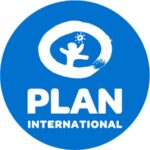Job Overview
-
Date PostedFebruary 12, 2024
-
Location
-
Expiration dateFebruary 18, 2024
-
Experience5 Years
-
GenderBoth
-
QualificationBachelor Degree
-
OrganizationSmallholder Commercialization and Agribusiness Development Project (SCADeP)
-
Required LanguagesEnglish
Job Description
REQUEST FOR EXPRESSION OF INTEREST (REOI)
TERMS OF REFERENCE
CONSULTANCY SERVICES FOR THE CONDUCT OF END OF PROJECT EVALUATION FOR SIERRA LEONE – P153437 – SMALLHOLDER COMMERCIALIZATION AND AGRIBUSINESS DEVELOPMENT PROJECT (SCADeP)
1.0 Background
1.1 Overview and purpose of the Assignment
The objective of this assignment is to hire the services of a consultancy firm to conduct an end of Project Evaluation for the Smallholder Commercialization and Agribusiness Development Project (SCADeP). The firm will develop and implement all aspects of the Project Evaluation (hereafter called the “survey”) to measure the results of project intervention: outputs; outcomes; impacts and document lessons learnt under SCADeP. The firm is expected to conduct the survey by randomly selecting beneficiaries in the project operational areas. The survey is also expected to be extended to non-beneficiaries in areas where the project was not implemented to serve as a control group.
1.2 The Project
The Smallholder Commercialization and Agribusiness Development Project (SCADeP- P153437) was approved by the World Bank Board in February 2016 and declared effective in November 2016, with an initial closing date of November 30, 2021. However, an additional financing (P170604) (AF) approved by the World Bank on July 15, 2020 and declared effective on September 14, 2020 extends the project closing date to June 28, 2024. The project was officially launched in January 2017, during which period effective implementation commenced.
The Project was initially funded with an IDA credit in the amount of US$ 40 million and a DFID grant of the equivalent of US$15 million. With the withdrawal of the planned DFID funding after a disbursement of only US$1.84 million, the WB provided an additional financing in the form of a grant of US$ 30 million to partly cover the financing gap resulting from the DFID withdrawal and provide additional resources to finance the construction of rural bridges to replace the non-motorized cable ferries plying across selected rivers in Sierra Leone. This puts the total project funding at US$71.84.
The Project Development Objective is “To promote smallholder commercialization by fostering productive business linkages between smallholder farmers and selected agribusiness firms and other commodity off-takers in Sierra Leone”. The project is implemented nationwide, and covers rice, cocoa, oil palm, poultry/maize, and onion value chains.
The project has five (5) components, following the addition of an emergency response component during the second restructuring of the project, as follows:
Component A. Support for Agribusiness Farmer Linkages and SMEs along selected Agricultural Value Chains, whose objective is to strengthen linkages between key value chain actors in selected agricultural value chains which are mainly rice, cocoa, oil palm and poultry/maize. The key focus will be strengthening the vertical alliances between agribusiness firms/SMEs and producer organizations/farmers whilst promoting horizontal alliances for producers’ networks. This component is structured into two sub-components: Sub-Component A.1: Promoting out-grower model for value chain financing to selected agribusinesses linked to out-grower schemes and sub-component A.2: Support for farmers’ aggregation.
Component B. Market access improvement, whose objective is to support the implementation of productive agribusiness-farmer linkages by addressing market access and coordination issues that constrain smallholder productivity and market efficiency. This component is also structured into two sub-components: Sub-Component B.1: Feeder roads and Rural Bridges rehabilitation and maintenance and Sub-Component B.2: Support for ICT technologies to facilitate market coordination.
Component C. Capacity Building Support for State and Non-State Institutions and Producer Organizations, whose objective is to build the capacity of state and non-state actors responsible for the provision of services relevant for smallholder commercialization and agribusiness development and Community banks and rural financial institutions operating in rural Sierra Leone to offer sustainable financial services to smallholder farmers.
Component D. Project Coordination, Monitoring and Evaluation, whose objective is to undertake the day to day running and overall project coordination, management, fiduciary oversight, monitoring and evaluation for SCADeP. This is structured into three sub-components: Sub-component D.1: Project Implementation and Coordination, Sub-component D.2: Project monitoring and evaluation, management information system and Sub-component D.3: Social and Environmental Management Risk.
Component E. Contingency Emergency Response Component (CERC), whose objective is to redirect some project resources from other components to respond to an eligible emergency or crisis. If such a crisis develops, the government may request the World Bank to reallocate project funds to cover some costs of emergency response and recovery.
2.0 Context of the assignment
It is important at this point in the life of the project to evaluate and assess outcomes and impacts of the project in line with the development objective of promoting smallholder commercialization by fostering productive business linkages between smallholder farmers and selected agribusiness firms and other commodity off-takers in Sierra Leone. In addition to evaluating other aspects of the project, special focus will be made to the results framework to ascertain the extent to which the hierarchy of results have been achieved.
2.1 Overall objective of the Assessment
The objective of this consultancy is to conduct an end of project evaluation for the implementation period November 2016 to June 2024, by means of assessing how project interventions have resulted in the identified and desired outcomes, the degree to which they have met the targets of key performance indicators and its overall development goal. In addition, the assessment should also be able to disaggregate which results and outcomes were intended from those that were unintended. The project evaluation shall provide for an assessment of project achievements, particularly the effects on empowerment and livelihoods of project beneficiaries. It should gather and consolidate lessons learned from implementation in a prioritized presentation. The findings from the survey will provide a crucial input into the Project Completion Report.
2.2 Focus areas
The assessment of the project’s performance should particularly be in tandem with standard project reporting guidelines.
- Relevance – the extent to which the objectives of the development intervention are consistent with beneficiary requirements, country needs, institutional priorities, partners and donors’ policies, as well as Project coherence in achieving its objectives;
- Effectiveness – the extent to which the development intervention’s objectives are achieved or are expected to be achieved considering their specificities (not just physical outputs but also high-level results; explaining factors determining achievements, including change of context; looking at other possible achievements). In addition, the evaluation should also measure achievements against Project Development Objectives (PDO) and Intermediate Results and provide explanations for the achievements or non-achievement of results.
- Efficiency – a measure of how economically resources/inputs are converted into results, with reference to project benchmarks (include project delays, overruns; technical issues; operational cost ratio, economic rates of return, etc.);
- Sustainability – the likely continuation of net benefits from a development intervention beyond the phase of external funding support. It also includes an assessment of the likelihood that actual and anticipated results will be resilient to risks beyond the project’s life;
- Rural poverty impact – the changes that have occurred or are expected to occur in the lives of the rural poor and their community (whether positive or negative, direct or indirect, intended or unintended) as a result of development interventions, (i.e., changes in: household income and net assets, human and social capital and empowerment, food security and agricultural productivity, production volumes, processing, marketed volumes, natural resources and the environment, institutions and policies); and
- Gender Equality and Women’s Empowerment – design features, implementation features (AWPB and allocated resources), effectiveness (results achieved), sustainability of gender-related results, performance of partners in promoting gender equality and empowerment of women.
2.3 Specific Objectives of the Survey
The project evaluation is intended to:
- Collect and analyze data to be used for measuring the impact of project activities, outputs, and interventions on the livelihoods of target beneficiaries as shown in the project results framework.
- Measure achievements against Project Development Objectives (PDO) and Intermediate Results and provide explanations for the achievements or non-achievement of results.
- Assess the level of behavioral changes, ownership, and sustainability of interventions.
- Evaluate experiences and implementation modalities
- Identify lessons learned.
- Provide an explanation of the consultant’s understanding of the terms of reference in terms what needs to be added or subtracted.
3.0 Task
Under the overall supervision of the Project Coordinator and in liaison with the M&E Specialist and other project staff of the PCU, the expected tasks for the Consultant shall be performed in accordance with a mutually agreed schedule. The tasks to be performed by the Consultant are captured under the following headings:
3.1 Document Review
- Work in close consultation with Project Coordinating Unit (PCU), implementing partners and all service providers to understand all indicators by which the project impacts, outcomes, outputs and activities have been monitored and measured.
- Review all project documents, particularly the SCADeP design report, Results framework, and other relevant literature (supervision reports, monitoring reports, previous annual reports, assessment reports, baseline report, special studies, etc.).
- Use other available donors’ and stakeholders’ reports that have undertaken similar studies.
3.2 Survey Approach- The Consulting firm shall:
- Recruit and train survey enumerators, field staff, supervisors and data entry technicians as needed.
- Identify and locate grantees (SLADF and ASMG) and households to be interviewed according to the sample design.
- Conduct interviews with implementing partners to understand project effects
- Provide data clearly indicating the list of beneficiaries interviewed in the project areas.
- Undertake the collection of data from male and female headed households.
- Assess physical progress, efficiency, and adequacy, in terms of delivery of project inputs, outputs and outcomes.
- Assess the relevance and effectiveness of all implemented project activities, including technical assistance and training given to project beneficiaries/ stakeholders.
- Analyze which factors and constraints have influenced project implementation, including technical, managerial, organizational, institutional, and socio-economic policy issues, in addition to other external factors perhaps unforeseen during design.
- Conduct analysis of data using appropriate software and present major findings in terms of both descriptive and inferential statistics in a final report.
- Maintain and make available a well-structured dataset of the survey conducted at the end of the study.
- Ensure that all data collection and resulting analyses is disaggregated by gender (and youth) wherever applicable.
- Where possible, identify linkages with other interventions pursuing similar objectives.
3.3 Survey Methodology
In carrying out this survey, the following will have to be taken into consideration: Design of questionnaires, testing of questionnaires, launching the survey, data entry and cleaning, data analysis and report generation.
Sampling framework and target population for the survey
The project has focused its operations around five major components: (i) Component A: Support to agribusiness-farmer linkages and SMEs along agricultural value chains, (ii) Component B: Market Access Improvement, (iii) Component C: Capacity Building support for state and non-state institutions and producer organizations, (iv) Component D: Project Management, Monitoring Evaluation and Policy Regulations and (v) Component E: Contingency Emergency Response (CER)
The sampling frame will include project beneficiaries (SLADF Grantees, ASMG Grantees, out-growers, State and non-state actors, Feeder Road users, community stakeholders in project intervention areas, project staff, etc.) and a control group (people who have not benefited from the intervention) to assess overall progress and project impacts. The sample population for the survey should be determined by the Consultant using standard sampling techniques.
Data Collection Methodology
The Consulting firm will use data collection methodology as appropriate to the variables being assessed, to include but not limited to:
- Key Informant interviews
- Individual Household interviews
- Focus Group discussions
4.0 Qualification of Consulting Firm
The Consulting Firm must be a reputable organization with a proven track record of conducting project evaluations and studies. Specifically, the firm must have the following qualifications:
- At least 5 years’ experience in conducting large quantitative and qualitative surveys.
- Completed at least 3 similar assignments.
- Strong capacity and experience in planning and organizing survey logistics.
- Strong capacity in data management and statistics
- Strong capacity in survey analysis and reporting of results.
- Experience in Monitoring and Evaluation of Rural Development/Agricultural Projects, Project Analysis, Participatory Rural Appraisal Methods, Economic and Financial Analysis and Community Development.
- A sound knowledge of the project cycles and the Monitoring and Evaluation systems of the World Bank and other donors
- A sound knowledge of Project Results framework
4.1 Required Personnel and Qualifications
To execute these services, the Consulting Firm must have the undermentioned key personnel with the requisite qualification and experience specified:
- Team Leader
The Team Leader must have proven end of project evaluation knowledge. Advance degree in Economics, Monitoring and Evaluation, Agricultural Economics, or related field. At least 5 years’ experience in conducting similar assignments (or experience in functions described in these TORs), experience in household, Agribusiness landscape and agricultural data collection and analysis required, ability to coordinate teams and ensure timely reporting.
- Statistician/Survey designer
Advance degree in Statistics, Economics, Agricultural Economics, or related field. Strong background in statistics, information technology and econometrics is required. At least three years of experience in the design of samples for household and agricultural surveys is required; preferably with experience in multi-topic surveys and exposure to the country.
- Agribusiness Specialist
Advance Degree in Agribusiness, Economics, Agricultural Economics, or related discipline with at least three years operational experience in this field. Two of the Five years’ experience should have been obtained in a developing country with experience in a management position. Good skills and experience in assessing value chain projects with emphasis on projects administering matching grants.
5.0 Deliverables
The Consulting Firm will produce the following deliverables for the project:
- Submission of inception report within two weeks of contract signature including sampling and methodology of the survey, for approval by the Project Coordinator, before continuation of the study.
- Household questionnaires in English which reflect any/all changes from piloting. Any translation made from local languages to English should be clearly documented.
- Questionnaires for all households interviewed.
- Completed data sets in electronic format (STATA, SPSS, E-Views, MS Excel, ODK), including sampling weights, if needed.
- Report analyzing the data including survey methodological note.
- A draft project evaluation report, to be submitted in soft (electronic) form within 3 months after contract signature.
- A comprehensive final project evaluation report which should be submitted in soft (electronic) and hard (five copies) forms within 3 weeks after receipt of consolidated comments from the Project Coordinating Unit.
6.0 Reference Materials
The following documents will be made available to the selected Consulting firm.
- Project document for SCADeP
- World Bank Supervision Reports
- SCADeP Progress Reports
- Results Framework
- Baseline Report
- Thematic reports
- M&E Reports
7.0 Reporting
The Consulting Firm shall report to the Project Coordinator. Final deliverables should be submitted to the Project Coordinator according to a schedule agreed upon given the limits of the contract duration. Deliverables are subject to acceptance by the Project Coordinator and should therefore be submitted by the Firm within the agreed timeframes.
7.1 Reporting Requirements
The content of the Project Evaluation Report shall include, but not limited to the following chapters:
- Executive Summary
- Project Background and Objectives
- Methodology
- Description of the results obtained based on the reporting guidelines – relevance, effectiveness, efficiency, impact, sustainability, etc.
- Conclusions and recommendations
- Annexes
8.0 Consultancy Duration
The consultancy will take effect from the date of contract signature and all deliverables, including preparation of the final survey report and discussing the results in a multi-stakeholder workshop (with Lead Ministry, implementing partners, project beneficiaries and other donor funded projects), are to be completed within 3 months.
9.0 Selection Procedure
The Consultant will be selected in accordance with World Bank Procurement Regulations for IPF Borrowers July 2016, revised November 2017 and August 2018 for the procurement of goods, works, non-consultancy and consultancy services.
10.0 Further Information
Further details should be obtained from the Project Coordinator, Smallholder Commercialization and Agribusiness Development Project (SCADeP), No 1 Scan Drive, Off Spur Road Wilberforce, Freetown, Sierra Leone from whom background documents and detailed Terms of Reference (ToR) will be available.
11.0 Submission Date
Smallholder Commercialization and Agribusiness Development Project (SCADeP) now invites Consultants to submit an Expression of Interest (REOI) for the above services. Interested Consultants must provide their Curriculum Vitae with a covering letter indicating their qualifications and experience to undertake the assignment. REOI must be delivered to the Project Coordinator, Smallholder Commercialization and Agribusiness Development Project (SCADeP), No. 1F Scan Drive, Off Spur Road Wilberforce, Freetown, Sierra Leone by March 11th, 2024 at 4:30 pm. The envelope must be clearly marked “EOI TO CONDUCT CONSULTANCY SERVICES FOR THE CONDUCT OF END OF PROJECT EVALUATION FOR SIERRA LEONE – P153437 – SMALLHOLDER COMMERCIALIZATION AND AGRIBUSINESS DEVELOPMENT PROJECT (SCADeP).
12.0 RIGHT TO SELECT/REJECT
The procuring entity has the right to accept or reject all REOIs







